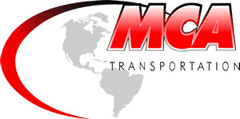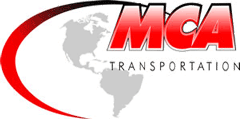- Not all motorcoach companies are equally safe.
While there are stringent safety regulations in place at the federal level (the “Federal Motor Carrier Safety Regulations,” or FMCSR’s; the complete set of regulations can be found online at the Federal Motor Carrier Safety Administration’s (FMCSA) website, http://www.fmcsa.dot.gov and similar laws at virtually every state level, they represent the minimum safety requirements for a commercial motor carrier of passengers to remain in business. Most carriers will operate well above these minimum rules. Some, inevitably, will operate outside the rules. Student travel planners need a way to distinguish between safe and unsafe operators. - Price must not be your reason for selecting an operator.
While the price of the trip is important, it must not be the most important criteria for selecting a carrier. As we discuss in Part II of this guide, price does relate to safety in many critical ways that a motorcoach consumer needs to understand. High prices don’t automatically infer a safe carrier, nor do low prices automatically signal an unsafe carrier, but good safety practices are expensive. If competitive pricing is important, student trip planners need to understand why prices differ. Turn to Part II for a more complete discussion. - Turn to the experts.
While this guide and others can help you understand those elements which determine a motorcoach company’s comparative safety, most travel planners — both casual and professional — are unqualified to make the final determination. The UMA and many state, federal and school transportation safety authorities strongly endorse the use of a “pre-qualification” process which allows knowledgeable safety examiners to carefully scrutinize all competing bus and motorcoach companies on a periodic basis. The result of that process is an “approved carrier” list of companies — all of who meet the necessary safety requirements and all of who are eligible to bid on student travel needs. Whether that list is compiled by a state, a school district or an individual school itself, if must be accompanied by an absolute and unwavering mandate that no student travel may occur on a carrier who has not been approved by the experts using the established pre-qualification review. This guide will help you identify some of the experts. - Research — well in advance of travel — is important.
If a safe carrier pre-qualification process isn’t yet available or if you’d just like to understand that process better or double-check the work that has been done, simple research is the answer. With the phenomenal growth of the Internet and the World Wide Web, the information you need is often just a few clicks away. The checklist in this section will provide background for many of the issues you should ask about when you individually review a carrier for service with your district.
Even at this stage, remember that just asking the questions isn’t enough to make your trip a safe one. It’s critical that you enlist someone to take part in your review that understands the answers. It does no good, for example, to ask for copies of the driver’s Motor Vehicle Records (MVR’s), if no one in the review committee understands how to read them or how to determine what’s important and what isn’t. Ask a motor carrier professional for help; simultaneously, discourage interpretations or guesswork by non-professionals.
Remember, too, that if your student groups use a professional travel agency or broker to make all the arrangements, the travel agent must understand that they may book transportation only with companies who have been qualified using the school system’s approved list or by a qualified motor carrier professional. Most travel agents and brokers are focused on cost, convenience and schedules but they are not bus and motorcoach safety specialists. Many commercial coach companies today offer their own travel planning services. Because of that, they’re fully capable to make complete travel arrangements for your group within the guidelines dictated by safe highway transport. If you’re unsure of the travel agent’s affiliation with the motorcoach company who will be providing transport, don’t be bashful about asking. If there is no corporate connection, ask the agent to identify the motor carrier so that you may conduct your own safety research.
Carrier research checklist.
Ask the company for its USDOT identification number.
The number is your best tool to begin your safety review of the motor carrier. All commercial bus and motorcoach companies operating across state lines must be granted “interstate authority” by the FMCSA. That authority requires a minimum insurance coverage, continued operation within federal and state safety rules and subjects the company and its vehicles and drivers to safety review and inspection by federal and state authorities at any time.
Review the carrier’s record online.
The USDOT number serves as your key to online research of the carrier’s safety record. Go the USDOT’s motor carrier safety website at http://www.safersys.org, which can provide you with a snapshot of the carrier’s safety record. The site will tell you:
- If the carrier is authorized to transport passengers for hire;
- If the carrier has current insurance in force;
- The carrier’s record of regulatory violations or “out-of-service” incidents; those times when a vehicle or a driver is found to be in violation of the rules, and a comparison to national averages;
- The carrier’s highway accident record;
- The carrier’s current USDOT “safety rating,” if any, and the date of the carrier’s last “compliance review,” or onsite inspection by authorities.
When you review the carrier’s SAFER record, remember that a) all highway accidents are recorded, whether or not they are judged to be the fault of the commercial carrier; and b) that fewer than half of all authorized passenger carriers have undergone “compliance reviews.” Many may, therefore, have no USDOT safety rating. The absence of a safety rating does not indicate that a carrier is either good or bad; nor does the presence of an accident on the SAFER records. You should not hire a carrier with an “unsatisfactory” or “conditional” safety rating.
Verify the company’s current insurance coverage.
All commercial motor carriers of passengers must maintain minimum insurance coverage to remain authorized to perform interstate service. Operators of vehicles capable of carrying 15 or fewer passengers must maintain coverage of at least $1.5 million; those operating larger vehicles must maintain coverage of at least $5 million. Records online may or may not be up-to-the-moment; to be certain of the carrier’s coverage, you should ask the insuring company to send you verification of the carrier’s coverage directly, indicating that the coverage is or will be in place on the dates of your travel. If you will be a continuing customer, you may also wish to ask the carrier to add you as an “additional insured party” on his policy. By doing so, you will receive direct communications about the carrier’s insurance coverage from the insurance company.
Verify the carrier’s qualification of drivers and vehicles.
All drivers must possess a current “commercial drivers license (CDL) issued by your state for the class of vehicle they will be driving, and a current medical certificate indicating that they have met physical qualifications within the previous two years. No driver should be operating the vehicle across state lines under a suspended or state-authorized exempt status.
- Complete driving records or “abstracts,” and medical certification records are privileged documents, protected under federal and state privacy regulations. Only the driver’s commercial license and a proof of medical qualification “card” are available for your review.
Drivers and other “safety-sensitive” employees, such as mechanics, are required to participate in drug and alcohol testing programs. Verify that the motor carrier has such a program in place. Because of federal restrictions, driver test results and records are not available for your review.
All commercial vehicles must be inspected at least once annually to certify their mechanical fitness and compliance. Some states perform this inspection; in those locations where there is no mandatory state inspection process, the carrier himself is required to conduct the annual inspection. Ask to see the most recent inspection report.
Summary and additional resources.
Following the steps in this part can help you to feel more confident about the safety of the motorcoach provider you’ve chosen for your student activity travel. But it isn’t “the end of the line” for those who have a sincere interest in making safety the first and most important criteria for student travel. Part II, which follows, discusses the ways which travel groups, chaperons and administrators can enhance travel safety after the choice of operator has been made. We urge you to review Part II carefully.
Remember the four most important steps you can take to ensure safe travel:
- Understand and acknowledge the fact that not all motorcoach companies are equally safe.
- Don’t chose a provider based on price alone.
- Turn to the experts for help. Insist on the adoption of an “approved carrier list” and demand that no travel takes place on unapproved carriers.
- Do the research. Review every carrier’s safety qualifications ahead of individual travel needs.


